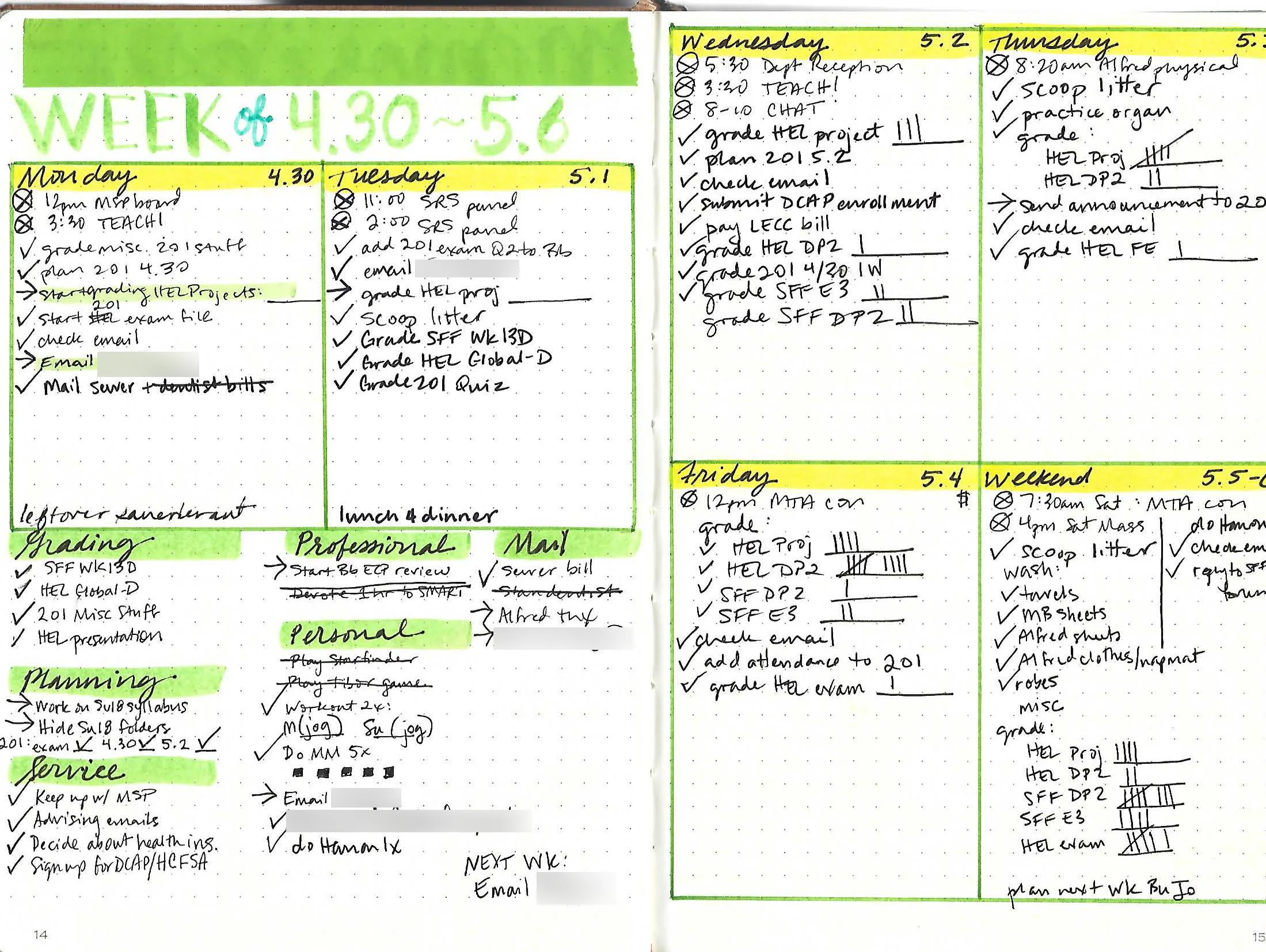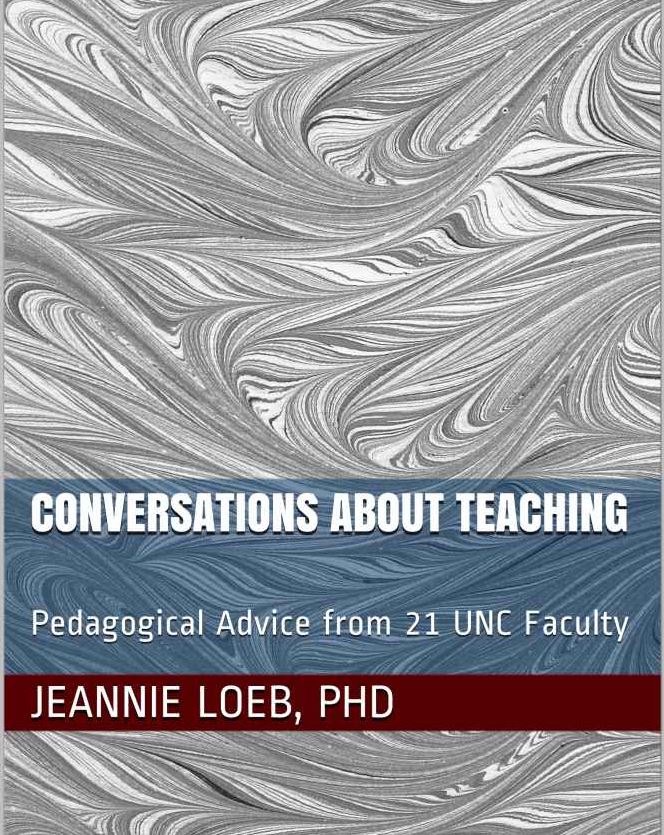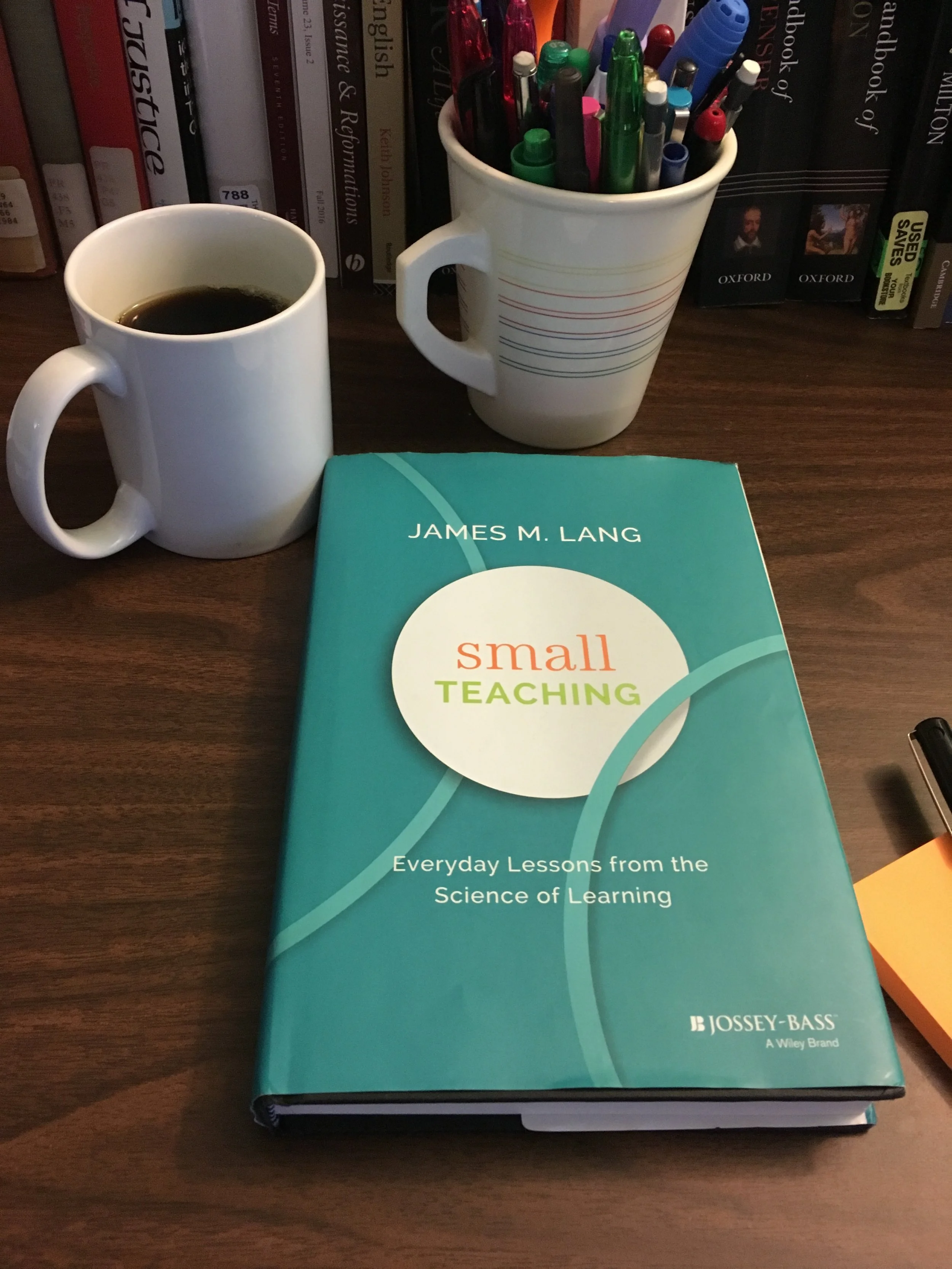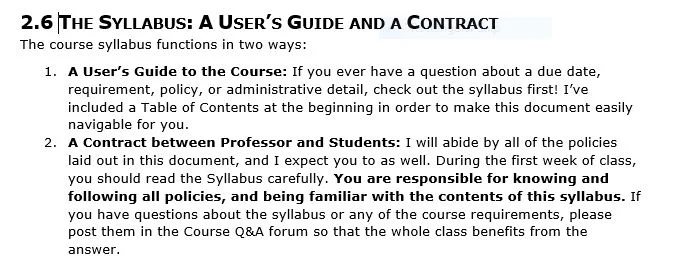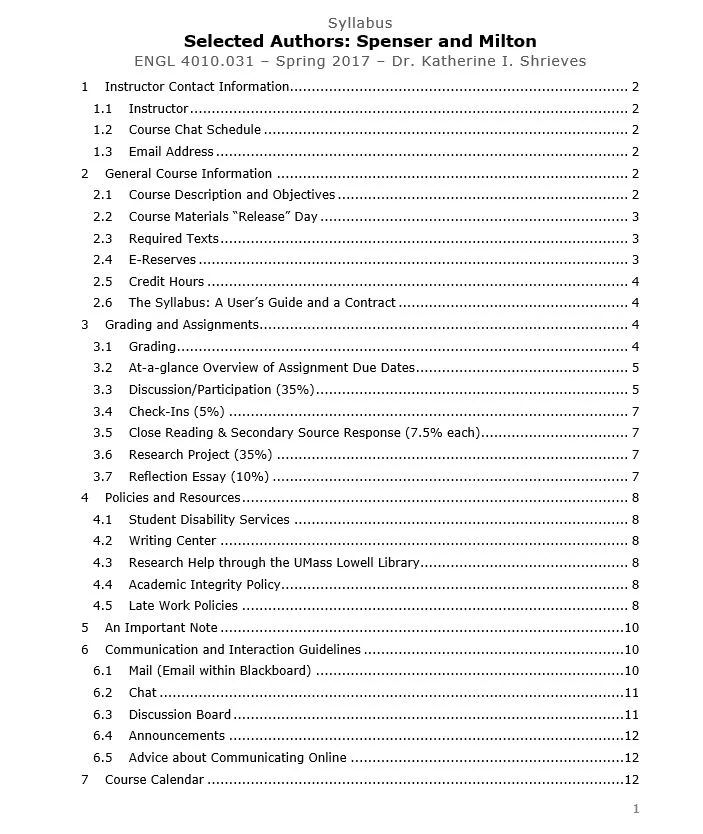Today, I’m talking about Teaching the Literature Survey Course: New Strategies for College Faculty, ed. Gywnn Dujardin, James M. Lang, and John A. Staunton. I can’t say enough good things about this book! Even if you don’t teach literature survey courses or you’re in an entirely different discipline, the assignments and approaches shared in Teaching the Literature Survey will spark your imagination. If you’ve ever started to plan a class and thought, “How can I possibly cover it all?” then this book is for you.
The Portfolio Approach to Grading Discussion in Online Classes
What I truly want to foster in my discussion forums above all is conversation. Portfolio grading is an important part of creating that conversational atmosphere. Students feel more empowered to experiment with ideas and approaches when every sentence isn’t being assessed. Moreover, portfolio grading encourages students to take ownership of their own participation.
Using a Combined Weekly/Daily Bullet Journal Spread
As an academic, the week is the unit of time that governs my professional life. This post shares the combined daily/weekly spread that I use to organize my tasks and schedule in my Bullet Journal.
How to Use Student-Created Rubrics for Participation Grades
The biggest philosophical benefit of a student-created participation rubric is that it gives students a voice in setting the criteria on which they are evaluated. With standards that are generated by the group rather than imposed from above by the teacher, students may feel more invested in the class. In this post, see step-by-step examples for how to implement student-created participation rubrics.
TextExpander for Teachers
On a couple of podcasts that I listen to, I kept hearing about a tool called TextExpander. I finally decided to try it out, and discovered that it’s definitely useful for teachers and academic advisors! This post provides an overview of TextExpander and a few examples of how TextExpander has helped to streamline my grading and correspondence in some subtle but helpful ways.
Review of a Thought-Provoking Podcast Episode about Online Teaching
Although it came out in December 2017, I only recently discovered an episode of the Teach Better podcast devoted to online learning: “Teaching Online with Doug, Edward, and Laura Gibbs.” This episode is worthwhile listening for anyone who teaches online or is considering branching into the world of online teaching. Since my bread-and-butter teaching is online, I couldn’t resist the opportunity to respond to Doug, Edward, and Laura’s ideas.
The Late-and-Missing Work Conundrum, Part 3: Policy Solutions
In the third and final part of this essay series about the teaching challenge of late-and-missing student work, I summarize my philosophy and describe my current policy approach.
The Late-and-Missing Work Conundrum, Part 2: What’s Wrong with Traditional Approaches?
In the first part of my essay series on coping with late-and-missing student work, I outlined what I see as the problem with typical policies that count missing assignments as a zero and stringently penalize late work. In the second part, I respond to the typical justification of a late-and-missing work policy and conclude with my own philosophy.
The Late-and-Missing Work Conundrum, Part 1: What’s the Problem?
How should teachers in online classes deal with late or missing work? Is it possible to craft late-and-missing-work policies that are fair and consistent, rewarding on-time performance while encouraging students like Jane to get back on track? These questions have consistently been some of my biggest challenges as an instructor, and in this essay series, I’ll share the philosophy and policies that I’ve developed through my years as an online educator.
How One Academic Professional Uses Bullet Journal to Stay Organized
If you’re into productivity, you might have heard of the Bullet Journal system, which is pen-and-paper method of managing schedules, projects, ideas, and task lists. In this post, I’m going to talk about how my own Bullet Journal (often abbreviated BuJo) fits into my professional workflow as a teacher. There are oodles of talented people sharing their BuJo journeys out there on the Internet, but I thought it might be interesting to share the perspective of an academic whose work is primarily digital and less rigidly structured than a typical 8-5 job.
Review: Conversations about Teaching by Jeannie Loeb
From time to time, I will use this space to share reviews of teaching-oriented resources. Today, I’m discussing Conversations about Teaching: Pedagogical Advice from 21 UNC Faculty, by Jeannie Loeb.
Getting it “Just Right”: Workload Management for Students and Instructors in Online Discussion Forums
One challenge for discussion forums in online classes is creating a lively, intellectually-rich community while also keeping the workload manageable for both students and the instructor. This essay provides some tips for accomplishing that difficult balance.
Screencasts for Online Learning, Part 1: Why Make Instructional Videos?
When I first started teaching online, I provided weekly, written “lecture notes” for my students. Now, however, I’m moving increasingly toward screencasts. In this two-part series, I talk about why screencasts are a good choice for online teaching and what my own process for screencast creation is like.
Don’t Interrupt, I’m Busy Professing
I am a teacher. As far as my students are concerned, “teacher” and “professor” mean the same thing, and they do to me, too. That doesn’t mean that a college-level teacher and a kindergarten teacher receive the same training or draw upon identical instructional skills on a daily basis. However, just because we teach different subjects to different levels of students, doesn’t mean we cannot both be teachers. Being a “teacher” also does not diminish the expertise that I, along with my faculty colleagues, have all developed in our subject areas. One of the great pleasures and challenges of my job is that I’m always trying to improve as both a scholar and a teacher, two roles that I’m content to inhabit.
Small Teaching: A Practical and Inspirational Resource for Teachers
From time to time, I will use this space to share reviews of teaching-oriented resources. Today, I’m starting with Small Teaching by James M. Lang.In the months since I read this book, insights from Small Teaching have continued to surface in my memory and quietly inform my instructional practice. It’s an essential addition to any teacher’s library.
In Defense of the Big Syllabus, Part 2: Student-Centered Design
Is your syllabus a purposeful document, or is it an accretion of “rules” in response to administrative needs and student behavior? This essay series argues that having a comprehensive syllabus is good and suggests strategies to make long syllabi helpful and engaging rather than overwhelming to students.
In Defense of the Big Syllabus, Part 1: The Comprehensive Syllabus
Is your syllabus a purposeful document, or is it an accretion of “rules” in response to administrative needs and student behavior? This essay series argues that having a comprehensive syllabus is good and suggests strategies to make long syllabi helpful and engaging rather than overwhelming to students.


